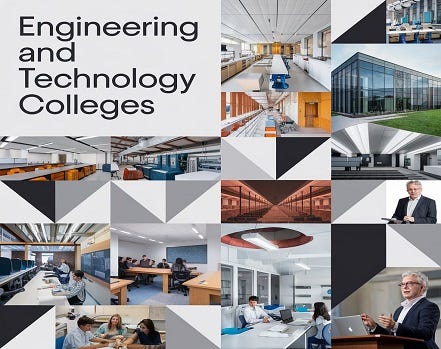Education Insider Magazine | Top Engineering and Technology Colleges
 john campbell
john campbell
Introduction
In the rapidly evolving world of the 21st century, engineering and technology are at the heart of innovation and progress. From artificial intelligence to sustainable infrastructure, today’s breakthroughs are powered by minds trained in specialized institutions. Engineering and technology colleges play a crucial role in equipping students with the technical knowledge, problem-solving skills, and creativity required to drive society forward. These colleges are not only centers of academic excellence but also incubators of future innovators, entrepreneurs, and leaders.
The Role of Engineering and Technology Colleges
Engineering and technology colleges serve as the backbone of a country’s industrial and technological development. They offer a range of programs in disciplines such as computer science, mechanical engineering, electrical engineering, information technology, civil engineering, and more.
These institutions focus not only on theoretical learning but also on practical application through labs, workshops, internships, and live projects. Many colleges are now integrating interdisciplinary learning, encouraging students to explore beyond their core subjects and develop skills in management, entrepreneurship, and communication.
Curriculum and Innovation
Modern engineering curricula are designed to keep pace with global advancements. Core subjects are often complemented by electives in cutting-edge fields such as robotics, machine learning, renewable energy, and cybersecurity. Many colleges collaborate with industries to offer real-time projects, guest lectures, and hackathons, which allow students to apply their knowledge to solve real-world problems.
Additionally, the rise of research-oriented education in premier engineering institutions has encouraged students to engage in innovation and publish scholarly papers, often leading to patents and startup ventures.

Global Impact and Opportunities
Graduates from top engineering and technology colleges often find opportunities with multinational companies, government organizations, and research institutions. Many pursue higher studies at globally reputed universities, contributing to international research and development.
Countries with a strong network of engineering colleges — like the United States, Germany, India, China, and South Korea — have witnessed significant economic and technological growth, showing the direct impact of such institutions on national progress.
Challenges and the Way Forward
Despite their contributions, engineering and technology colleges face several challenges. These include outdated teaching methods in some institutions, lack of infrastructure in rural colleges, and a gap between academic knowledge and industry expectations.
To overcome these issues, many educational boards and private colleges are adopting new teaching models such as flipped classrooms, experiential learning, and online course integration. Emphasis on soft skills, entrepreneurship, and global exposure is also becoming more prominent.
Conclusion
Engineering and technology colleges are more than just institutions of higher learning — they are catalysts of change and progress. By nurturing innovation, fostering practical skills, and adapting to the needs of a dynamic world, these colleges play a critical role in shaping the future. For aspiring engineers and technologists, they offer not just education, but a launching pad for ideas that can transform industries and societies.
Subscribe to my newsletter
Read articles from john campbell directly inside your inbox. Subscribe to the newsletter, and don't miss out.
Written by
